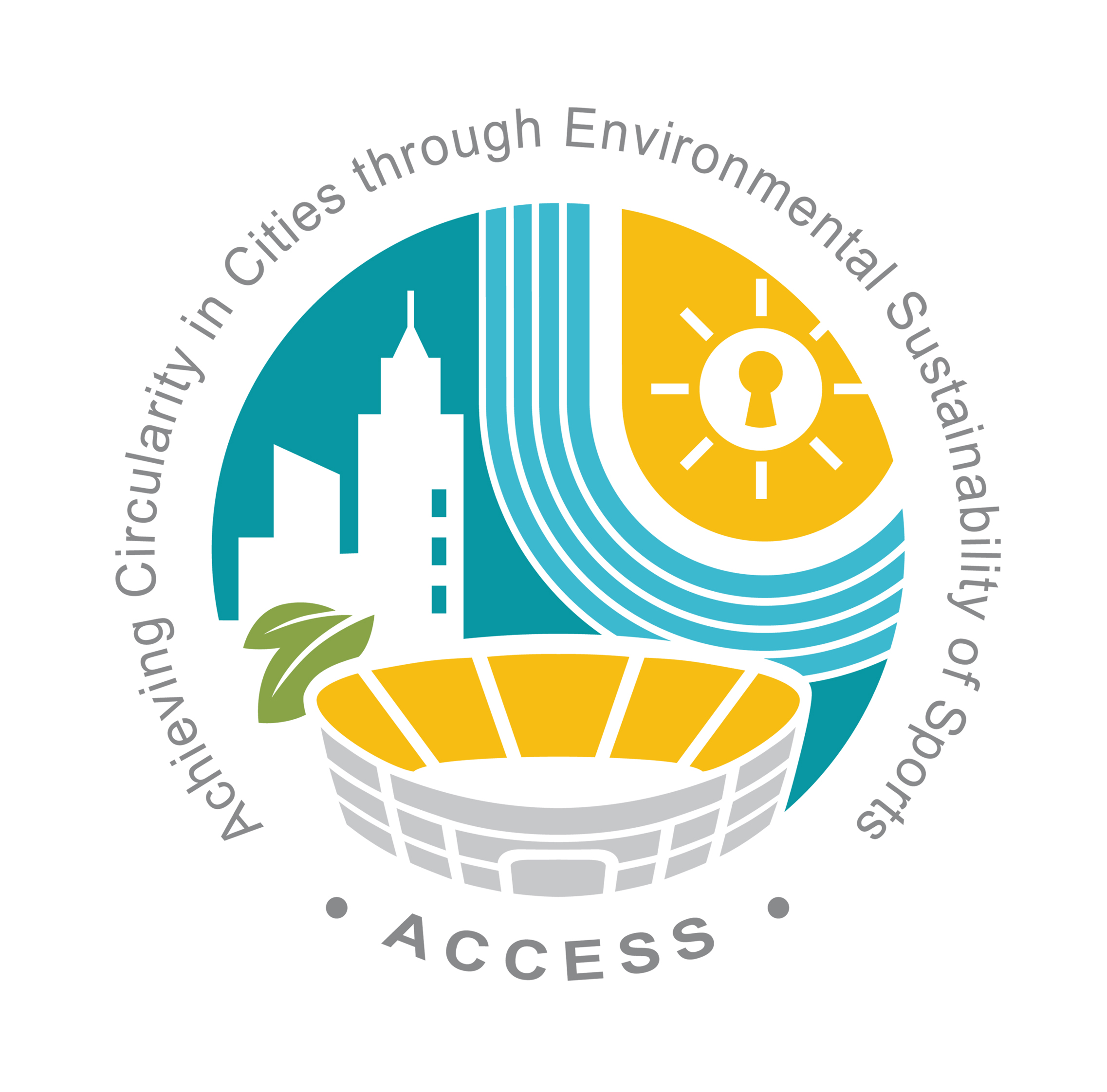News
ACCESS
Achieving Circularity in Cities through Environmental Sustainability of Sports (ACCESS) aims at enhancing sustainability and circularity in cities and regions by increasing the sport organisations’ capacities and knowledge on environmental matters, improving their governance patterns and making sport events more sustainable. Four pilot sport organisation and their respective stadiums will go through an extensive screening, including interviews, audits, and site visits, in order to understand their current environmental sustainability principles and environmental performances in general. Once their strategies and policies are compared to those of their respective cities, an action plan would be drawn up which would enable these sport organisations to contribute to overall transition towards circular economy locally and regionally. This would enable the four participating organisations - the Gaelic Athletics Association (GAA), the Danish Football Association (DBU), Porto Football Club (FCP) and the Welsh Football Association (FAW) to get closer to their local and regional authorities and open the windows to major cooperation across a variety of fields such as mobility, waste, energy, governance, procurement etc. Ultimately, they would also become reference organisations for other sport entities in their countries to replicate and multiply the ACCESS methodology.
Project financed by the Erasmus+ Sports Programme of the European Union, and the project will last for 3 years, from June 2022 to June 2025.
Highlights
The ACCESS project is organising a webinar series covered diverse topics, including sustainability communication and reporting, environmental assessments, and green procurement in sports. Visit the event page to learn more, register, and watch the recordings.
{slider THE PROJECT}
ACCESS is looking at narrowing the gap between the current environmental performances of sport clubs and associations and strategies and targets of the respective cities and regions they are located in and where their activities are taking place. The key goal is to activate a collaboration between urban stakeholders and sport organisations for getting closer to circular cities.
Thanks to previous projects ACR+ was involved in a lack of coherence between stadiums and cities regarding their environmental policies was observed. Sport organisations and stadiums are putting efforts in improving various environmental management practices, however, they might not be compatible with the targets and strategies of the local authorities and thus a lot of added value can be lost. This project wants to see concerted action regarding certain policies what would bring more comprehensive results in all fields of events.
Supported by two technical partners, ACR+ (as the project coordinator) and Sant’Anna School of Advanced Studies, the Gaelic Athletics Association (GAA), the Danish Football Association (DBU), Porto Football Club (FCP) and the Welsh Football Association (FAW) will go through the aforementioned journey which should result in improved cooperation with their respective local and regional authorities and concrete steps towards improving their operational and governance related environmental performances.
{slider ACTIVITIES}
Due to its rich experience and expertise in the field of sustainability of sports, ACR+ is the project leader and oversees the project management, including the cooperation between the project partners, quality insurance, budget, and time management. ACR+ is also responsible for the activities related to communication and dissemination. It will operate closely with Scuola Superiore Sant'Anna to guide the sport clubs in their changes.
ACR+ will support DBU in the development and implementation of Circular City Committees, which aim at creating synergies between local stakeholders and spreading the projects results.
The project itself will go through different phases, starting from the assessment phase which would feed into the training and education phase in order to increase the capacities of participating sport organisations. They would use this newly acquired knowledge for running their local or regional Circular City Committees which would need to result in comprehensive and achievable actions plans to take place place before the end of the project. Once the partners are through these phases, they will start acting as reference organisations in their countries for multiplying and replicating these activities.
{slider PARTNERS INVOLVED}
ACCESS´ project leader is ACR+, Association of Cities and Regions for sustainable Resource management (BE), and its project partners are:
- Dansk Boldspil-Union / DBU (DK)
- FC Porto / FCP (PT)
- Football Association of Wales / FAW (UK)
- Gaelic Athletic Association / GAA (IE)
- Sant’Anna School of Advanced Studies / SSSA* (IT)
* ACR+ member
{/sliders}
More information:











